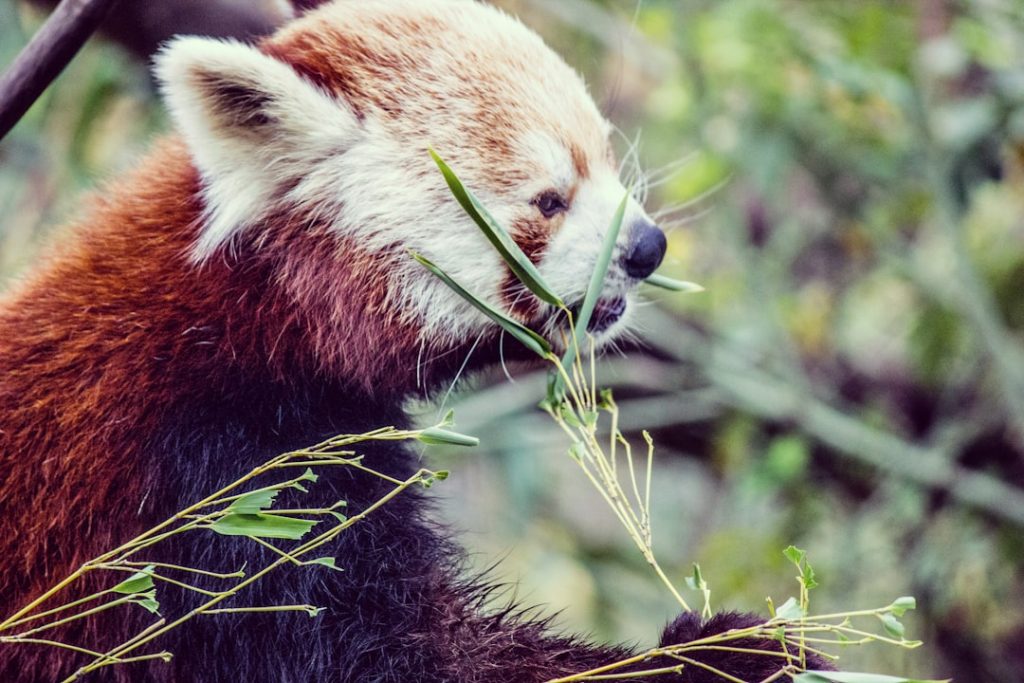Chick starter is a specialized feed formulated to meet the nutritional requirements of young chicks from hatching to approximately 8 weeks of age. This critical growth period demands a diet rich in protein, vitamins, and minerals to support rapid development. The feed is designed to provide these essential nutrients in an easily digestible form for young chicks.
Proper nutrition during this stage is crucial for ensuring the growth of healthy, productive adult chickens. Chick starter is available in medicated and non-medicated varieties. Medicated chick starter contains a small amount of medication, typically an antibiotic, to prevent common chick illnesses such as coccidiosis.
Non-medicated chick starter does not contain medication and is suitable for chicks not at risk of developing these illnesses. Both types provide the essential nutrients necessary for chick development. The choice between medicated and non-medicated starter depends on the specific needs of the flock.
Chick starter plays a vital role in raising healthy chickens and establishes the foundation for their future growth and development. It is an essential component in poultry husbandry, ensuring that chicks receive the proper nutrition required for optimal health and productivity.
Table of Contents
Key Takeaways
- Chick starter is a specially formulated feed for young chicks to support their growth and development.
- Growing chickens have specific nutritional needs that require a balanced diet of protein, vitamins, and minerals.
- Transitioning to grower feed is important as chickens mature and their nutritional requirements change.
- Signs that chickens are ready for grower feed include increased size, feather development, and reduced reliance on chick starter.
- Keeping chickens on chick starter for too long can lead to health issues such as obesity and skeletal problems.
- It is recommended to keep chickens on chick starter for 6-8 weeks before transitioning to grower feed.
- In conclusion, providing the right feed at the right time is crucial for the health and development of growing chickens.
Nutritional Needs of Growing Chickens
Protein: The Building Block of Growth
Protein is a crucial nutrient for growing chickens, as it is essential for muscle development and overall growth. Chick starter feed is typically formulated to contain around 18-20% protein, which is higher than the protein content found in layer feed or other types of chicken feed.
A Balanced Mix of Vitamins and Minerals
In addition to protein, growing chickens require a balanced mix of vitamins and minerals to support their overall health and development. These include vitamins A, D, and E, as well as calcium, phosphorus, and other essential minerals.
Energy for Growth and Activity
Growing chickens also require a source of energy to fuel their growth and activity. This is typically provided in the form of carbohydrates, which are found in grains such as corn and wheat. The combination of these essential nutrients in chick starter feed provides growing chickens with everything they need to thrive during this critical stage of their development. It is important to ensure that growing chickens have access to a high-quality chick starter feed that meets all of their nutritional needs in order to support their healthy growth and development.
Transitioning to Grower Feed

As chicks grow and develop, their nutritional needs change, and it becomes necessary to transition them from chick starter feed to grower feed. Grower feed is formulated to meet the specific nutritional needs of adolescent chickens, providing them with the right balance of protein, vitamins, and minerals to support their continued growth and development. The transition from chick starter to grower feed typically occurs around 8 weeks of age, although this can vary depending on the breed and individual growth rate of the chicks.
Grower feed contains slightly less protein than chick starter, usually around 16-18%, as well as a lower concentration of certain vitamins and minerals. This shift in nutrient levels reflects the changing needs of growing chickens as they transition from the rapid growth phase of early development to the steady growth phase of adolescence. It is important to make this transition gradually, mixing increasing amounts of grower feed into the chick starter over the course of a week or two to allow the chicks’ digestive systems to adjust to the new feed.
This gradual transition helps to minimize any potential digestive upset and ensures that the chicks continue to receive the nutrients they need as they grow.
Signs that Chickens are Ready for Grower Feed
There are several signs that indicate when chicks are ready to transition from chick starter to grower feed. One of the most obvious signs is age – most chicks are ready for grower feed around 8 weeks old, although this can vary depending on the breed and individual growth rate of the chicks. Another sign that chicks are ready for grower feed is their physical appearance and behavior.
As chicks grow, they will become more active and start to develop their adult feathers. They may also start to show more interest in pecking at objects and exploring their environment. In addition to these physical signs, you may also notice changes in the chicks’ eating habits.
Chicks that are ready for grower feed may start to eat less chick starter or show less interest in it altogether. They may also start to show more interest in other foods or treats that are suitable for adolescent chickens. These signs indicate that the chicks’ nutritional needs are changing, and they are ready for a feed that is better suited to their current stage of development.
By paying attention to these signs, you can ensure that you transition your chicks to grower feed at the right time to support their continued growth and development.
Risks of Keeping Chickens on Chick Starter for Too Long
Keeping chickens on chick starter for too long can have negative effects on their health and development. Chick starter is formulated to meet the specific nutritional needs of young chicks, providing them with high levels of protein, vitamins, and minerals to support their rapid growth and development. However, as chickens mature, their nutritional needs change, and they require a different balance of nutrients to support their continued growth and overall health.
One of the main risks of keeping chickens on chick starter for too long is that they may consume excessive amounts of certain nutrients, such as protein or certain vitamins and minerals, which can lead to health problems. For example, excessive protein intake can put strain on the kidneys and liver, leading to potential long-term health issues. In addition, keeping chickens on chick starter for too long can also be costly, as chick starter tends to be more expensive than grower feed or other types of chicken feed.
By transitioning your chickens to grower feed at the appropriate time, you can help to minimize these risks and ensure that they receive the right balance of nutrients to support their continued growth and development.
Recommendations for Length of Time on Chick Starter

Factors Affecting Feeding Duration
The recommended length of time for feeding chicks chick starter varies depending on several factors, including breed, individual growth rate, and overall health. In general, most chicks should be fed chick starter from hatching until around 8 weeks of age. However, some larger or slower-growing breeds may benefit from staying on chick starter for a little longer, while smaller or faster-growing breeds may be ready for grower feed sooner.
Monitoring Growth and Development
It is important to monitor your chicks’ growth and development closely and make adjustments to their feeding regimen as needed. This may involve consulting with a poultry nutritionist or veterinarian who can provide guidance based on your specific flock’s needs. By paying attention to your chicks’ physical appearance, behavior, and eating habits, you can determine when they are ready for grower feed and make the transition at the right time.
Supporting Overall Health
Providing your chicks with the appropriate feed at each stage of their development is essential for supporting their overall health and ensuring that they grow into healthy, productive adult chickens.
Conclusion and Summary
In conclusion, chick starter plays a crucial role in supporting the healthy growth and development of young chicks by providing them with the essential nutrients they need during this critical stage of their lives. As chicks mature, their nutritional needs change, and it becomes necessary to transition them from chick starter to grower feed in order to continue supporting their growth and overall health. By paying attention to the signs that indicate when chicks are ready for grower feed and making this transition at the appropriate time, you can help to minimize potential health risks and ensure that your chickens receive the right balance of nutrients at each stage of their development.
Overall, providing your growing chickens with high-quality feed that meets their specific nutritional needs is essential for supporting their overall health and well-being. By understanding the nutritional needs of growing chickens and making informed decisions about their feeding regimen, you can help to ensure that they develop into healthy, productive adult chickens that will provide you with years of enjoyment and companionship.
If you’re wondering how long you should keep chickens on chick starter, you may also be interested in learning about turning a shed into a chicken coop. This article from Poultry Wizard provides helpful tips and guidance on how to repurpose a shed into a comfortable and functional living space for your chickens. Learn more about turning a shed into a chicken coop here.
FAQs
What is chick starter feed?
Chick starter feed is a specially formulated feed designed to meet the nutritional needs of young chicks. It typically contains higher levels of protein and essential nutrients to support healthy growth and development.
How long should you keep chickens on chick starter?
Chickens should be kept on chick starter feed for the first 6-8 weeks of their life. During this time, they require the higher protein levels and essential nutrients found in chick starter to support their rapid growth and development.
What happens if you keep chickens on chick starter for too long?
Keeping chickens on chick starter for too long can lead to excessive weight gain and potential health issues. Once chickens reach 6-8 weeks of age, they can transition to a grower feed that is better suited to their nutritional needs as they continue to mature.
Can you mix chick starter with other types of feed?
It is not recommended to mix chick starter with other types of feed, as this can disrupt the balance of nutrients and potentially lead to nutritional deficiencies. It is best to transition chicks to a grower feed at the appropriate age.
Meet Walter, the feathered-friend fanatic of Florida! Nestled in the sunshine state, Walter struts through life with his feathered companions, clucking his way to happiness. With a coop that’s fancier than a five-star hotel, he’s the Don Juan of the chicken world. When he’s not teaching his hens to do the cha-cha, you’ll find him in a heated debate with his prized rooster, Sir Clucks-a-Lot. Walter’s poultry passion is no yolk; he’s the sunny-side-up guy you never knew you needed in your flock of friends!







